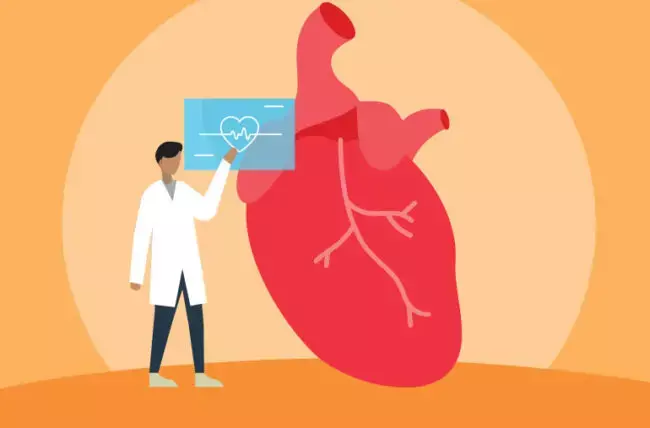- Home
- Medical news & Guidelines
- Anesthesiology
- Cardiology and CTVS
- Critical Care
- Dentistry
- Dermatology
- Diabetes and Endocrinology
- ENT
- Gastroenterology
- Medicine
- Nephrology
- Neurology
- Obstretics-Gynaecology
- Oncology
- Ophthalmology
- Orthopaedics
- Pediatrics-Neonatology
- Psychiatry
- Pulmonology
- Radiology
- Surgery
- Urology
- Laboratory Medicine
- Diet
- Nursing
- Paramedical
- Physiotherapy
- Health news
- Fact Check
- Bone Health Fact Check
- Brain Health Fact Check
- Cancer Related Fact Check
- Child Care Fact Check
- Dental and oral health fact check
- Diabetes and metabolic health fact check
- Diet and Nutrition Fact Check
- Eye and ENT Care Fact Check
- Fitness fact check
- Gut health fact check
- Heart health fact check
- Kidney health fact check
- Medical education fact check
- Men's health fact check
- Respiratory fact check
- Skin and hair care fact check
- Vaccine and Immunization fact check
- Women's health fact check
- AYUSH
- State News
- Andaman and Nicobar Islands
- Andhra Pradesh
- Arunachal Pradesh
- Assam
- Bihar
- Chandigarh
- Chattisgarh
- Dadra and Nagar Haveli
- Daman and Diu
- Delhi
- Goa
- Gujarat
- Haryana
- Himachal Pradesh
- Jammu & Kashmir
- Jharkhand
- Karnataka
- Kerala
- Ladakh
- Lakshadweep
- Madhya Pradesh
- Maharashtra
- Manipur
- Meghalaya
- Mizoram
- Nagaland
- Odisha
- Puducherry
- Punjab
- Rajasthan
- Sikkim
- Tamil Nadu
- Telangana
- Tripura
- Uttar Pradesh
- Uttrakhand
- West Bengal
- Medical Education
- Industry
Despite complete recovery, Sepsis induced cardiomyopathy has long-term adverse effects

A new study published in Annals of Intensive Care suggests that sepsis-induced cardiomyopathy (SIC) may continue to have an impact on the host's system even after recovery from cardiomyopathy due to greater in-hospital mortality in patients who were hospitalized for more than 10 days and 1-month mortality.
A life-threatening organ dysfunction, such as that of the respiratory, digestive, renal, immunological, neurological, and cardiovascular systems, results from a dysregulated immune response brought on by an infection. It is debatable whether sepsis-induced cardiomyopathy affects prognosis and how it relates to death at various stages. In order to comprehend the relationship between SIC and mortality in septic patients, Yu-Min Lin and colleagues carried out a comprehensive review and meta-analysis.
From the beginning until 8 July 2021, this team identified and evaluated observational data in PubMed and Embase addressing the mortality associated with SIC among septic patients. In-hospital and one-month mortality were the outcomes. To assess the mortality risk ratio in patients with and without SIC, the random-effects model was chosen. To investigate the outcome's heterogeneity, meta-regression, subgroup, and sensitivity analyses were used.
The key findings of this study were:
1. Our findings showed that SIC was non-statistically related with higher in-hospital mortality when compared to non-SIC, but the connection was statistically significant in patients with hospital stays longer than 10 days.
2. These results included 20 trials and 4,410 septic patients.
3. Additionally, SIC was strongly linked to a greater risk of 1-month death.
4. While left ventricular dysfunction was not, among SIC patients, right ventricular dysfunction was strongly linked to an elevated 1-month death rate.
In conclusion, these results highlight the significance of early biventricular evaluation for septic patients, along with continuum treatment and monitoring for SIC patients even after recovery. Future research that includes a clearer definition of sepsis, hemodynamic measures, assessment tool factors, and outcomes is necessary to support the link between SIC and mortality.
Reference:
Lin, Y.-M., Lee, M.-C., Toh, H. S., Chang, W.-T., Chen, S.-Y., Kuo, F.-H., Tang, H.-J., Hua, Y.-M., Wei, D., Melgarejo, J., Zhang, Z.-Y., & Liao, C.-T. (2022). Association of sepsis-induced cardiomyopathy and mortality: a systematic review and meta-analysis. In Annals of Intensive Care (Vol. 12, Issue 1). Springer Science and Business Media LLC. https://doi.org/10.1186/s13613-022-01089-3
Neuroscience Masters graduate
Jacinthlyn Sylvia, a Neuroscience Master's graduate from Chennai has worked extensively in deciphering the neurobiology of cognition and motor control in aging. She also has spread-out exposure to Neurosurgery from her Bachelor’s. She is currently involved in active Neuro-Oncology research. She is an upcoming neuroscientist with a fiery passion for writing. Her news cover at Medical Dialogues feature recent discoveries and updates from the healthcare and biomedical research fields. She can be reached at editorial@medicaldialogues.in
Dr Kamal Kant Kohli-MBBS, DTCD- a chest specialist with more than 30 years of practice and a flair for writing clinical articles, Dr Kamal Kant Kohli joined Medical Dialogues as a Chief Editor of Medical News. Besides writing articles, as an editor, he proofreads and verifies all the medical content published on Medical Dialogues including those coming from journals, studies,medical conferences,guidelines etc. Email: drkohli@medicaldialogues.in. Contact no. 011-43720751


